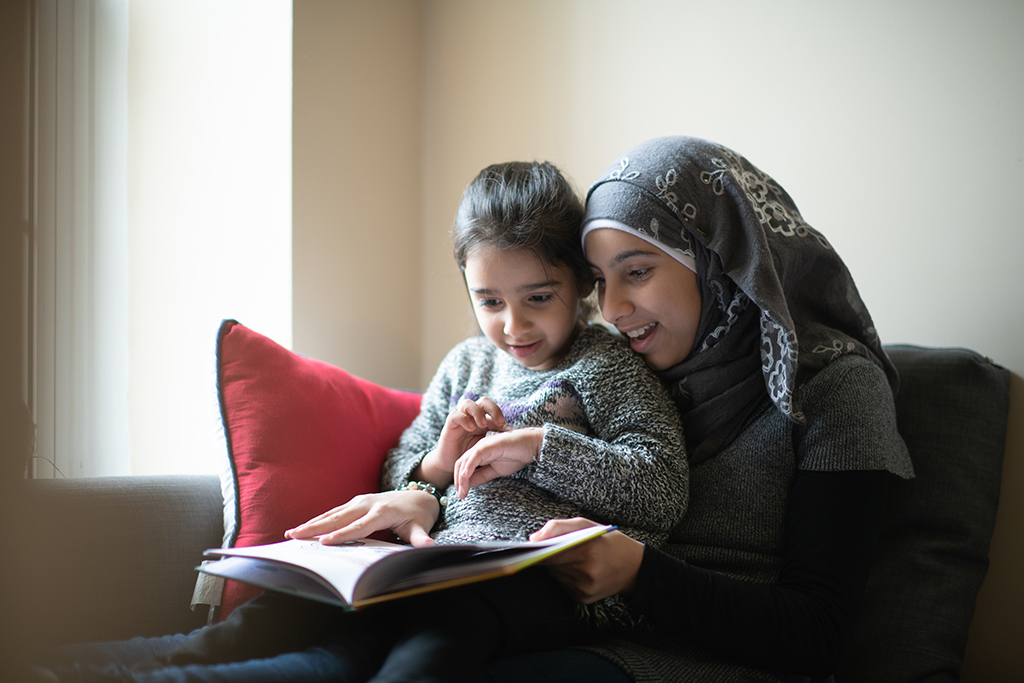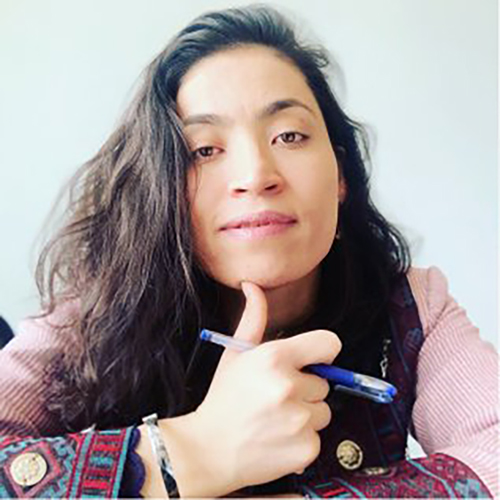
Gaisu Yari fled Taliban rule in Afghanistan as a teenager, coming to the United States as a refugee. She was initially resettled in Worcester, and part of her integration included English language classes at the American Language and Culture Institute at Clark University.
Today, Yari is director of Afghan Voices of Hope, a project that collects stories from displaced Afghans living across the globe. She will make a return visit to Clark next week, albeit virtually, for “Afghan Refugee Voices: What does belonging look like in host countries?,” part of the Integration and Belonging Hub’s Belonging Talks series.

“Gaisu is an American citizen who has used her refugee experience to become a human rights activist,” says Leora Kahn, research scholar in the International Development, Community, and Environment Department and coordinator of the Integration and Belonging Hub. Kahn is currently working with Yari on an exhibit about Afghan refugees that will be shown around the world, including at the U.S. Institute of Peace.
IDCE Associate Director Anita Fábos is a co-founder of the Integration and Belonging Hub, which grew out of a collaboration with Jude Fernando, associate professor of international development and social change; Sharon Hanna, director of career development and external relations at IDCE; and Kahn. (Jozefina Lantz, a research scholar at IDCE last year, also contributed to the project). The Hub has received support from a Clark Academic Innovation Fund grant.
“We’re trying to learn more about and find innovative approaches to belonging,” Fábos says. “We don’t believe there is only one way to do immigrant and refugee integration, especially for people who have had multiple homes.”
For example, after returning to Afghanistan, Gaisu Yari was forced to move to the United States a second time after the Taliban returned to power in 2021. But Yari’s close family found refuge in Poland, a country that has become an important place for her. She has had to learn to create a sense of belonging across Afghanistan, the U.S., and Poland.
The Integration and Belonging Hub looks at integration through a wider lens, Fábos says. People resettle as refugees in places but also belong to networks across geographies, which creates challenges and opportunities. How do these resettled people create community across borders? And how do the residents in their host communities learn to build bridges with their new neighbors?
“Integration is a multidirectional process,” says Fábos, noting that while refugees have to learn how to become part of new communities, people in those communities must adapt and find ways to welcome all sorts of newcomers.
The Integration and Belonging Hub has launched three initiatives: the Belonging Talks series; an internship program for students who want to work with local agencies; and an inter-university network across Worcester that come together to share their experiences of working with refugee and migrant communities.
The goal, Fábos says, is to have best practices emerge so that those immersed in the work of belonging and integration can answer the essential question: Are we getting it right?


